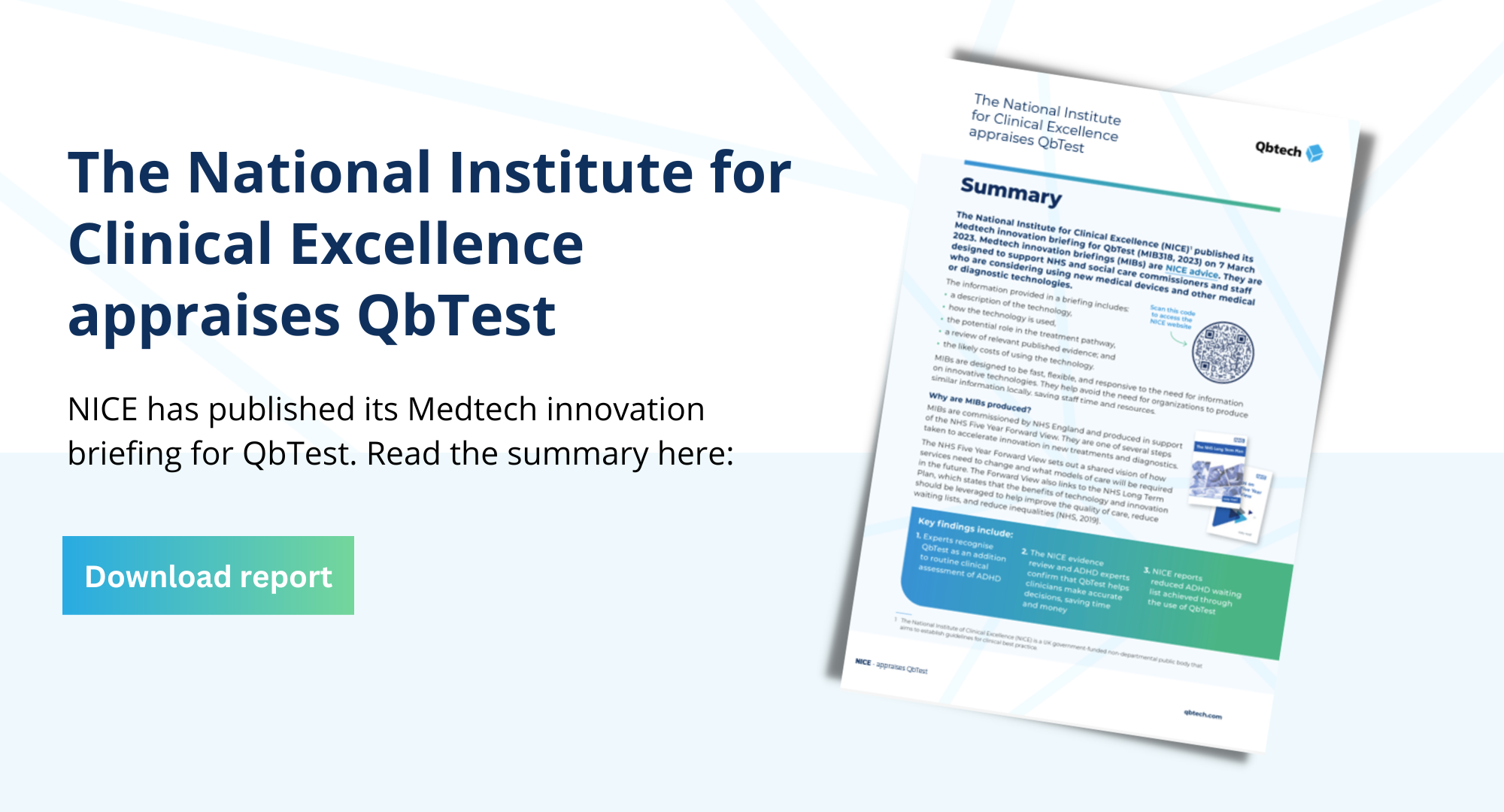1-minute summary: The National Institute for Clinical Excellence (NICE) publishes its Medtech innovation briefing [MIB318] for QbTest. The report highlights a number of positive findings, namely that QbTest saves clinician time and NHS money when used as part of ADHD assessments – with no loss of accuracy. Read the full NICE report.
Today marks real progress in the recognition of the value of objective measures for ADHD (QbTest) as part of the comprehensive assessment of ADHD alongside other clinical measures. In its report, titled: QbTest for the assessment of attention deficit hyperactivity disorder (ADHD), independent ADHD experts appraise QbTest and evaluate evidence from key pieces of research.
What is NICE?
The National Institute of Clinical Excellence (NICE) are a UK government funded non-departmental public body that aim to establish guidelines for clinical best practice:
“NICE balances the best care with value for money across the NHS and social care, to deliver for both individuals and society as a whole.” nice.org.uk
MIB318 briefings
NICE regularly produce MIBs to appraise innovative health technologies for potential use by the NHS. Experts are invited to review evidence for technology, examining their practical clinical use.
Highlights
This publication covers both the clinical value of QbTest in addition to the impact for NHS trust resources:
- QbTest saves clinician time and NHS money when used as part of ADHD assessments – with no loss of accuracy
- Clinicians have greater confidence in their decisions when they have access to objective data from QbTest
- ADHD experts confirm that QbTest helps clinicians make accurate decisions, saving both time and money.
What this means for clinical practice
As its name suggests, NICE helps the NHS establish clinical best practice. The positive findings of this report encourage further adoption of objective measures (QbTest) as part of what we argue should be ‘gold standard’ of ADHD assessment, and treatment – when used in conjunction with other clinical measures.
More on treatment monitoring for ADHD treatment
One of the ADHD experts asked to provide feedback for this appraisal stated: “clinicians found value in the ability to assess medication treatment effects using QbTest”. When patients perform a QbTest as part of their ADHD assessment the added benefit is that [if medication is prescribed] clinicians can monitor the effectiveness of a dose of medication to objectively observe its potential impact.
Helping reduce gender bias in ADHD assessments
Objective measures of ADHD help to mitigate gender bias by comparing individuals performance on a computer-based task, to an age and sex-at-birth matched control group. “Two experts also found use of the technology [QbTest] particularly helpful with young girls where the presentation may be less clear and in those who may ‘mask’ their symptoms.”
